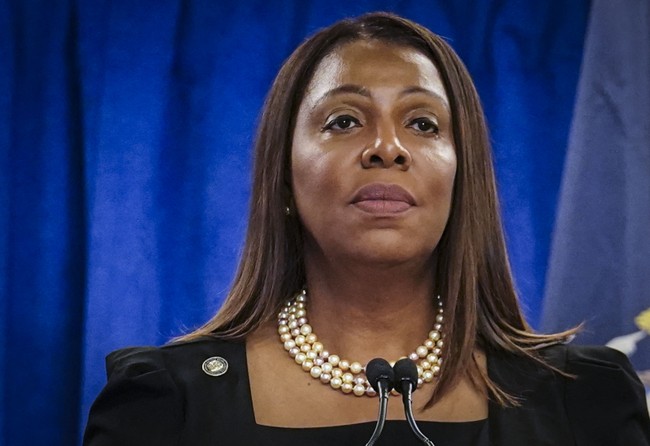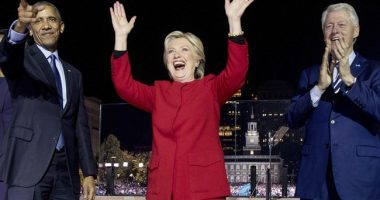
A group of 12 Democratic AGs have sued the Trump administration over the president’s tariffs. The group was led by the AGs from Arizona and Oregon but also included New York’s AG Letitia James.
The legal challenge, led by Arizona Attorney General Kris Mayes and Oregon Attorney General Dan Rayfield, seeks to halt the enforcement of the global tariffs Trump levied that invoked a wartime law granting presidents the power to oversee trade if the United States is in a state of emergency.
“By claiming the authority to impose immense and ever-changing tariffs on whatever goods entering the United States he chooses, for whatever reason he finds convenient to declare an emergency, the President has upended the constitutional order and brought chaos to the American economy,” said the complaint Democratic attorneys general filed in the U.S. Court of International Trade…
New York Attorney General Letitia James, a frequent target of Trump’s attacks, argued that the tariffs “will lead to more inflation, unemployment, and economic damage” and that U.S. consumers will be forced to foot the bill for what amount to high import taxes.
White House spokesperson Kush Desai gave a statement mentioning James by name.
“Once again, Democrats like Letitia James are prioritizing a witch hunt against President Trump over protecting the safety and wellbeing of their constituents,” he said. “The Trump Administration remains committed to using its full legal authority to confront the distinct national emergencies our country is currently facing — both the scourge of illegal migration and fentanyl flows across our border and the exploding annual U.S. goods trade deficit.”
The AGs argue that President Trump doesn’t have the authority to put tariffs in place and that the emergency declaration he has used to do so doesn’t hold up. Specifically, Trump has justified the tariffs with reference to an emergency created by the flow of fentanyl across the border. Here’s a bit of the lawsuit’s argument.
By the 1970s, Congress had grown troubled with the proliferation of emergency declarations under laws like the Trading with the Enemies Act (TWEA). Such laws were originally intended to lend the President special or heightened powers during times of crisis but were ultimately used as shortcuts around peacetime constraints on the President’s powers. Congress recognized that the exception threatened to swallow the rule. As one House report on efforts to reform TWEA noted, TWEA bestowed upon the President “essentially an unlimited grant of authority for the President to exercise, at his discretion, broad powers in both the domestic and international economic arena, without congressional review.”
One reform Congress made to curb the President’s emergency powers was to restrict TWEA to its original purpose, limiting its application to “time[s] of war.” At the same time, Congress enacted IEEPA, which allowed the President to regulate imports and exports in response to certain non-wartime emergencies, while stressing that the triggering event had to be an “unusual and extraordinary threat.” Thus, it is not enough that the President declare a national emergency under the National Emergencies Act (NEA); only those arising from unusual and extraordinary threats originating “in whole or substantial part outside the United States” unlock IEEPA’s grant of powers. Id. Congress also subjected the President’s authority under IEEPA to reporting requirements and reserved for itself the ability to terminate declared emergencies by joint resolution.
Not once has any other President used IEEPA to impose tariffs. In the nearly five decades since IEEPA was enacted, no other President has imposed tariffs based on the existence of any national emergency, despite global anti-narcotics campaigns spearheaded by the United States and longstanding trade deficits.
The bottom line is that the AGs want a court to rule the tariffs illegal and declare this a matter for congress. If that happens the current tariffs (at least the ones on our end) would presumably vanish along with any existing interest on the part of other nations in negotiating new trade deals with the US. No doubt this sounds pretty good to China right now. Other countries might also be tempted to wait it out and see if Democrats can solve the problem for them.









